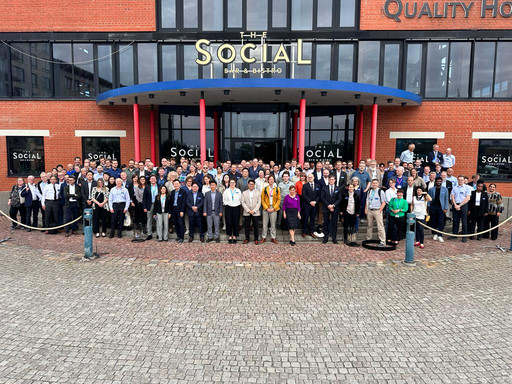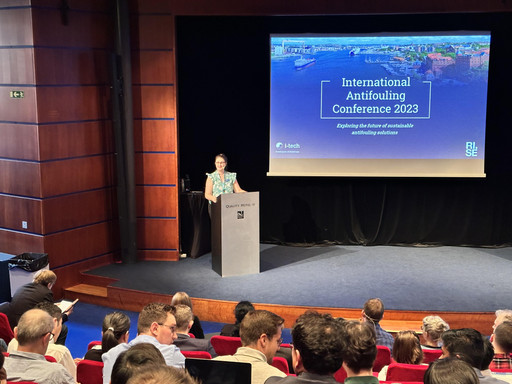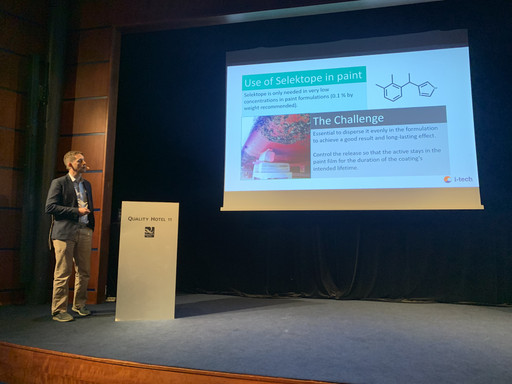Effective antifouling coatings essential for reaching sustainability goals – one of the conclusions when I-Tech gathered international experts in marine antifouling
Antifouling coatings that more effectively protect ships against biofouling will be crucial in meeting some of the UN’s global sustainability goals and decarbonisation targets for the international shipping industry. That was one of the conclusions at an international conference on marine antifouling that I-Tech recently arranged together with RISE, Research Institutes of Sweden.
The purpose of the conference was to bring together leading experts within the marine antifouling industry to discuss the future of protection against biofouling on ship hulls. The discussions were held against the background of the increasing need for effective antifouling coatings, not least to be able to meet some of the global sustainability goals.
Marine fouling on ship hulls results in ships requiring more energy for propulsion, which leads to increased emissions of greenhouse gases and an increased risk of invasive species transfer between marine ecosystems. Actions to combat climate change and to preserve and use the world’s oceans in a sustainable manner are goals that are included among the 17 global sustainability goals that UN member states adopted in 2015. Based on the UN’s sustainability goals, the International Maritime Organization (IMO) has set several sustainability goals for commercial shipping, including that it should reduce its greenhouse gas emissions, GHG, to net-zero by or around 2050.
One challenge highlighted during the conference is that the number of approved biocides available to antifouling coating manufacturers has significantly decreased over the past decade, which has reduced the possibilities to effectively combat marine fouling. For the industry to be able to continue the development of effective antifouling coatings, increased collaborations in research and development between suppliers and coating manufacturers are necessary to effectively make use of all available biocides and technologies.
The International Antifouling Conference was organised by I-Tech and RISE for the second time and this year brought together 170 participants from all over the world.
“Our conference has become a platform where industry, end users and R&D professionals from antifouling companies and academia can meet and share knowledge. I-Tech has developed Selektope, a unique biocide that will be part of the solution for more effective antifouling paints, but increased cooperation between the industry’s various players will also be a decisive component if we are to be able to continue developing the effective antifouling coatings that are required,” says Philip Chaabane, CEO of I-Tech AB.


